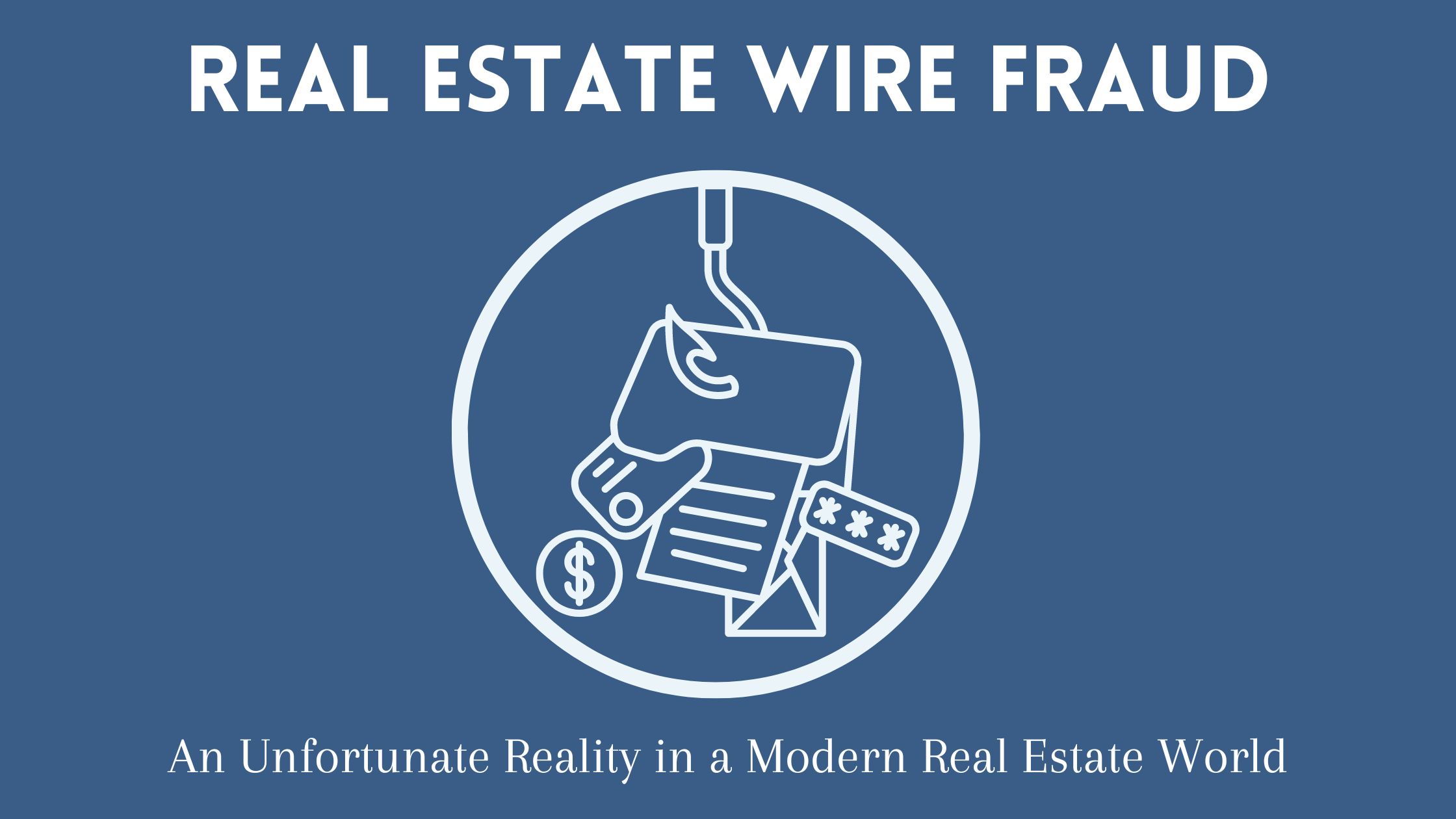

Real estate is not immune to scams; one that has become more common is real estate wire fraud. This scam occurs when a scammer contacts a homebuyer through phishing, tricking them into wiring cash to a fake account. This is a complex scam, with well-developed conversations to convince homebuyers to trust them as valid entities.
Unfortunately, it’s one of the most prevalent cybercrimes in the United States, with over 13,000 people falling victim to it in 2020, a 17% increase from 2019. The highest reported came in the form of emails, with hackers forging emails and other information to assume the role of a party in the transaction.
The amount of wire fraud increased from previous years primarily due to covid, according to those who monitor the crime. With the onset of the pandemic, transactions quickly pivoted to online communication, which made it easier for hackers. In total, there was an estimated $1.8 trillion loss in 2020 due to this scam, with the average victim losing nearly $100,000. The online presence of the necessary information to complete the scam, coupled with the number of transactions, rising prices, and all-cash offers all were factors that increased the occurrence of wire fraud.
There are plenty of heart-breaking stories related to this scam, with people losing their life savings to these criminals. Hence, why it’s essential to be aware of this scam, how it works, and the best ways to avoid it.
Real estate wire fraud relies on phishing. Phishing occurs when a hacker uses fake emails, phone numbers, or websites to impersonate someone. In this case, they would be impersonating a party within the real estate transaction.
Typically, the hacker will use stolen information to craft an at-first-glance, legitimate email. These are not your run-of-the-mill scam emails either; they will look highly correct. However, after taking another look, you may notice some inconsistencies like double letters, an incorrect signature, or a different host domain.
The process typically follows the following pattern, as criminals. . .
1) Gain access to a known party’s email
2) Monitor communications, but wait to act until the money is moving
3) Use a compromised authentic account or a spoofed account to impersonate.
4) Provide instructions to the buyer to steal from them
The emails have four hit points, according to an expert in the field, that are common across all these scam emails:
The confirmation request after you’ve wired the funds is for their fast re-routing of the money into their own account, attempting to ensure the scam is complete without intervention.
As a note, just because the person seems to know a lot about the transaction, it doesn’t mean they are legitimate. As these scammers watch the transaction, gathering vital information, they will know the perfect time to strike and also have answers to questions you may ask to verify their legitimacy.
The first mistake is thinking that you’ll never fall for a wire fraud scam. It could happen to anyone, no matter how intelligent or well-versed in the world of real estate one is.
In order to avoid falling victim to these scammers, these steps are suggested by experts.
We would always recommend double-verifying information provided via email by contacting a trusted party via their established phone number.
Also, if it’s an option in your transaction, to avoid wiring the funds altogether, you could always pay with a cashier’s check as a safeguard.
There’s no straightforward answer; it varies based on the situation.
It might be assumed that the bank or financial institution will bear the burden, as they typically do so in other instances of fraud. However, in real estate wire fraud, the bank is rarely found liable — as in most cases, the consumer willingly authorized the transaction.
While the consumer is usually liable, it’s not always the case. Courts have also found the fault to be attributed to real estate agents, brokers, escrow companies, and sometimes even title companies if they are found to be negligent in their duties.
The following are the best ways to improve the chances of recovery. However, it is important to note that only 29% of victims see all their money recovered, and in 40% of cases, only 10% or less is recovered.
This article provides some further context regarding the steps listed above if you would like to learn more.
Real estate wire fraud has become the unfortunate reality in this modernizing industry. In order to attempt and prevent the continual rise of wire fraud in transactions, education is vital. By reading this blog, you’ve already started your journey to learning more about this vicious scam. We would recommend continuing to read and keep up to date with this fraud, especially if you’re employed in the industry or entering it as a buyer or seller.